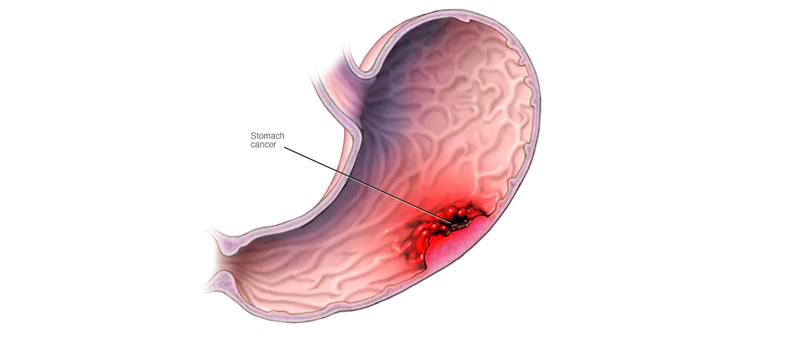
Stomach cancer, also known as gastric cancer, is a malignant tumor that develops in the lining of the stomach. It is a relatively common cancer worldwide, although its incidence has been declining in many Western countries over the past few decades. Despite this trend, stomach cancer remains a significant health concern due to its often late-stage diagnosis and limited treatment options.
There are several risk factors associated with stomach cancer, including infection with the bacterium Helicobacter pylori, a diet high in salty and processed foods, smoking, obesity, and a family history of the disease. Individuals with certain genetic conditions, such as hereditary diffuse gastric cancer syndrome, are also at an increased risk.
Symptoms of stomach cancer can be vague and nonspecific, often resembling other gastrointestinal conditions. Common signs and symptoms may include persistent abdominal pain or discomfort, unintentional weight loss, loss of appetite, nausea and vomiting, difficulty swallowing, and bloody stools. However, many people with stomach cancer may not experience any symptoms until the disease has advanced.
Diagnosis of stomach cancer typically involves a combination of imaging tests, such as upper endoscopy, CT scan, or MRI, along with biopsy samples obtained during endoscopy. Early detection of stomach cancer is crucial for improving treatment outcomes, as it allows for more effective surgical interventions and potentially curative therapies.
Treatment options for stomach cancer depend on the stage and extent of the disease, as well as the individual's overall health and preferences. Surgery is the primary treatment for early-stage stomach cancer and may involve partial or total removal of the stomach (gastrectomy) along with nearby lymph nodes. Chemotherapy and radiation therapy may be used before or after surgery to shrink tumors, destroy remaining cancer cells, or alleviate symptoms in advanced cases.
In recent years, targeted therapies and immunotherapies have emerged as promising treatment approaches for certain subtypes of stomach cancer. These therapies work by targeting specific molecular pathways or harnessing the body's immune system to recognize and attack cancer cells. Clinical trials are ongoing to evaluate the effectiveness of these novel treatment strategies and identify new therapeutic targets.
Prevention of stomach cancer primarily involves addressing modifiable risk factors, such as avoiding tobacco use, maintaining a healthy weight, and adopting a balanced diet rich in fruits, vegetables, and whole grains while limiting intake of processed and salty foods. Additionally, early detection and treatment of Helicobacter pylori infection may help reduce the risk of developing stomach cancer in high-risk populations.
In conclusion, stomach cancer is a serious disease that requires early detection and prompt treatment for optimal outcomes. Advances in diagnostic techniques, surgical procedures, and targeted therapies offer hope for improved survival rates and quality of life for individuals affected by this challenging condition.